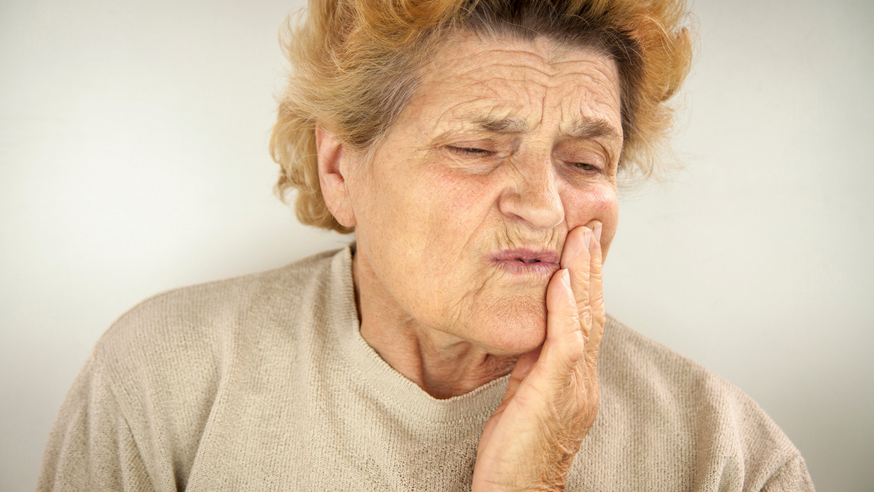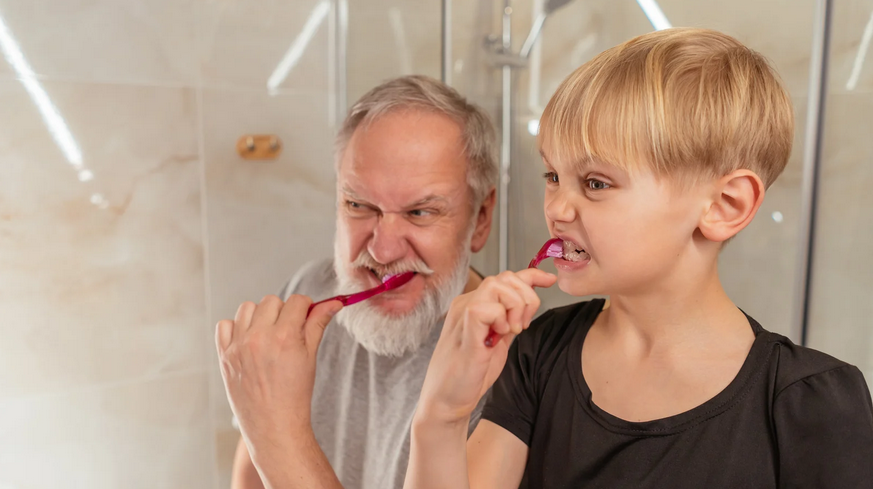A Guide to Maintaining Oral Health in Your Golden Years: Dental Care for Seniors

As we age, taking care of our teeth and gums becomes even more important. Good oral health not only helps maintain a healthy smile but also contributes to our overall health and well-being. However, seniors often face unique challenges that can make it harder to maintain good oral hygiene, such as reduced dexterity, medication side effects, and age-related changes in the mouth. Neglecting oral health can lead to painful dental problems and even serious medical conditions. Therefore, seniors must receive regular dental care and take steps to preserve their oral health.
In this article, we will discuss common dental problems faced by seniors and provide tips for maintaining good oral health. We will also cover special considerations for seniors who require dental procedures. By following these guidelines, seniors can keep their teeth and gums healthy and enjoy a comfortable and happy life.
Common Dental Problems for Seniors

Seniors face unique dental challenges that can impact their oral health. Some of the most common dental problems experienced by seniors include:
- Tooth decay and cavities: Decay can occur at any age. But seniors are more susceptible due to factors such as dry mouth caused by medications, gum recession, and weakened enamel from years of wear and tear.
- Gum disease: Gum disease, also known as periodontal disease, is a chronic bacterial infection that affects the gums and bone supporting the teeth. It is common among seniors and can cause tooth loss if left untreated.
- Dry mouth: It is a condition where the mouth does not produce enough saliva, leading to discomfort, difficulty chewing and swallowing, and an increased risk of tooth decay and gum disease.
- Darkened Teeth: As your loved one ages, their teeth can become darker or yellow due to years of exposure to staining substances such as coffee, tea, and tobacco. Certain medications can also cause teeth to darken.
- Sensitive Teeth: Lots of seniors’ experience tooth sensitivity, which can make it uncomfortable to eat or drink hot or cold foods and beverages. This can be caused by receding gums, which can expose the sensitive roots of the teeth.
Another serious problem that seniors can face is oral cancer. Oral cancer can develop in the mouth, throat, or lips, and can cause pain, difficulty swallowing, and even death if not detected and treated early. It is important for seniors to be aware of the risks associated with oral cancer and to receive regular oral cancer screenings from their dental professional. Early detection and treatment can significantly increase the chances of a successful recovery.
Tips for Maintaining Good Oral Health for Seniors
Maintaining good oral health is important at any age, but it becomes even more crucial for seniors as they face unique dental challenges. By following a few simple tips, seniors can maintain good oral health and prevent dental problems. In this section, we will provide some tips for seniors to maintain healthy teeth and gums. And if you are someone taking care of a senior, you will find this section helpful as well.
1. Brush and Floss Regularly

Seniors should brush their teeth at least twice a day and floss at least once a day to remove plaque and food particles from their teeth and gums. It is also important to use an antiseptic mouthwash to kill bacteria and freshen your breath.
Tips on how to properly brush teeth:
- Squeeze a pea-sized amount of fluoride toothpaste onto the toothbrush.
- Hold the toothbrush at a 45-degree angle to the teeth and brush in a circular motion. Make sure to brush the front, back, and top of each tooth.
- Use gentle pressure and avoid scrubbing too hard, as this can damage the teeth and gums.
- Brush the teeth for at least two minutes, or as recommended by the dentist.
- Brush the tongue gently to remove bacteria and freshen your breath.
- Rinse the mouth with water to remove any remaining toothpaste and debris.
- After brushing, rinse the toothbrush with water and store it in a clean, dry place. Replace the toothbrush every three to four months or when the bristles become frayed.
And here are tips on Flossing Your Teeth:
- Choose a floss that works best for you, such as waxed or unwaxed, flavored or unflavored, or a floss pick.
- Cut a piece of floss that is about 18 inches long.
- Wind the floss around the middle fingers, leaving about two inches of floss between your hands.
- Hold the floss tightly between the thumbs and index fingers.
- Gently slide the floss between your teeth using a back-and-forth motion, making sure to get down to the gum line.
- Curve the floss into a C-shape around each tooth, and carefully slide it under the gumline.
- Use a clean section of floss as you move from tooth to tooth.
- Be gentle as you floss, as harsh flossing can cause bleeding or damage to the gums.
- Make sure to floss the back teeth, including the molars.
- Rinse your mouth with water to remove any remaining food particles and debris.
2. Regular Dental Checkups

Seniors should visit their dentist at least twice a year for routine checkups and cleanings. This helps to identify any potential dental concerns early and prevent them from becoming more serious.
3. Eating a Healthy Diet
Seniors should eat a healthy and balanced diet that is rich in calcium and vitamin D, which are essential for maintaining strong teeth and bones. They should also limit their intake of sugary and acidic foods and drinks, which can cause tooth decay and erosion.
4. Quitting Smoking and Limiting Alcohol Intake
Smoking and excessive alcohol consumption can increase the risk of oral cancer, gum disease, and tooth loss. Seniors should quit smoking and limit their alcohol intake to maintain good oral health.
5. Using Dental Appliances as Needed
Seniors who wear dentures, bridges, or other dental appliances should follow the manufacturer’s instructions for cleaning and maintenance. They should also have their appliances checked by a dentist regularly to ensure proper fit and function.
Other Healthy Habits for Seniors

There are several other habits that older adults can incorporate into their daily lives to further promote good oral health.
- Drinking plenty of water: Staying hydrated helps to stimulate saliva production, which helps to wash away food particles and bacteria from the mouth.
- Avoiding sugary and acidic foods and drinks: These can lead to tooth decay and erosion, so it’s important to limit the consumption of these items.
- Chewing sugarless gum: Doing this after meals can help to stimulate saliva production and neutralize acids in the mouth, which can help to prevent tooth decay.
- Quitting smoking: Smoking can increase the risk of gum disease and oral cancer, so quitting smoking can have a significant impact on oral health.
- Managing stress: Stress can lead to teeth grinding and clenching, which can cause damage to teeth and jaw muscles. Managing stress through relaxation techniques, exercise, or other methods can help to prevent these problems.
The Takeaway
Taking care of oral health is crucial for seniors to lead healthy and comfortable life. Along with following the dental care for seniors tips mentioned, there are other habits that seniors can incorporate into their daily routine to promote good oral health.
If you are someone taking care of a senior, you can also help them maintain good oral health by reminding them to follow these tips and by assisting with dental appointments and daily oral hygiene routines. However, there are times when you are unable to assist them with these things. In such cases, it may be helpful to have a reliable person to assist with dental care for seniors. This person could be a family member, friend, or professional caregiver. It’s important to select someone who is trustworthy and has experience with oral care for seniors.
If seniors require additional assistance with their dental health, Serenity Senior Care is a reliable home healthcare agency for older adults. Our team of professional caregivers, including Home Health Aides, are trained to assist with daily living activities and healthcare needs, including oral hygiene routines.


